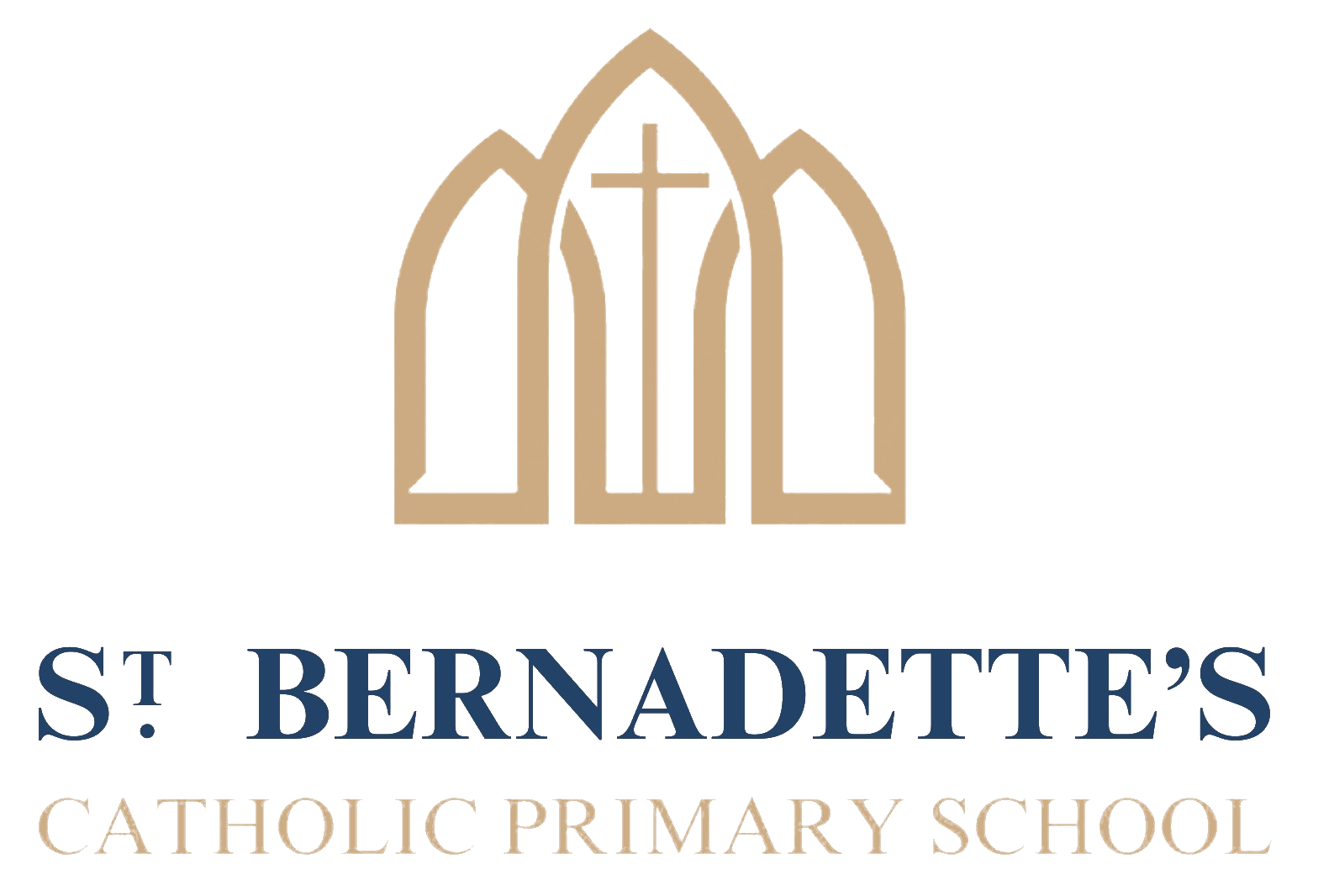Phonics and Reading
PHONICS

At St. Bernadette’s we follow the Ruth Miskin Read,Write Inc Phonics Scheme.
Children learn to read sounds and blend them into words. They apply this phonic knowledge to read and comprehend Storybooks that are carefully matched to the sounds they know.
The aim of Read Write Inc. Phonics is for children to learn to read early. By the end of term 2 in Year 2 children are able to read stories at over 100 words per minute.
They also learn how to form letters using mnemonics to help them. They learn to spell correctly using their Fred fingers. And they learn to compose their own writing - drawing upon ideas from the story they’ve just read.
Everything knits together: The phonics supports the reading and writing; The reading supports the writing, the writing supports the reading. That’s why Ruth called it Read Write Inc
Progress groups
While your children are learning to read, they work in progress groups to master each level of phonics and reading. The reading leader assesses and re-groups children every half-term.
Children work in these progress group for one hour each day. This means they are learning at their ‘challenge’ level for five hours a week. (Reception children build up to this throughout the year).
READING VIPERS
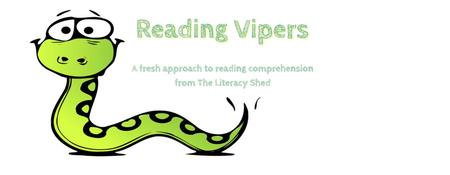
At St. Bernadette’s children are taught the skills of Reading (outlined in the National Curriculum and the KS1 and KS2 test domains) through the use of VIPERS which were created by Rob Smith (The Literacy Shed).
The Reading Vipers can be used by both KS1 and KS2 with a little adaption. The main difference being in the S.
Sequence – KS1
Summarise – KS2
In KS1, ‘Explain’; is not one of the content domains, rather it asks children why they have come to a certain conclusion, to explain their preferences, thoughts and opinions about a text.
In KS2, the Explain section covers the additional content domains of 2F, 2G and 2H which are not present in KS1.
What are Vipers?
VIPERS is an anagram to aid the recall of the 6 reading domains as part of the UK’s reading curriculum. They are the key areas which we feel children need to know and understand in order to improve their comprehension of texts.
VIPERS stands for:
The six domains focus on the comprehension aspect of reading and not the mechanics: decoding, fluency, prosody etc. As such, VIPERS is not a reading scheme but rather a method of ensuring that teachers ask, and children are familiar with, a range of questions. They allow the teacher to track the type of questions asked and the children’s responses to these which allows for targeted questioning afterwards.
Key Stage 1
In EYFS and Key Stage 1, reading skills are taught and practised. This lesson follows on from their daily phonics lesson where children are in small groups. When children have completed the phonics programme they will continue with VIPERS.
- 1a draw on knowledge of vocabulary to understand texts [Vocabulary]
- 1b identify/explain key aspects of fiction and non-fiction, such as characters, events, titles and information [Retrieve]
- 1c identify and explain the sequences of events in texts [Sequence]
- 1d make inferences from the text [Infer]
- 1e predict what might happen on the basis of what has been read so far [Predict]
Key Stage 2
In Key Stage 2, reading skills are taught and practised using VIPERS during whole class reading sessions.
- 2a Give/explain the meaning of words in context [Vocabulary]
- 2b retrieve and record information/ identify key details from fiction and non/fiction [Retrieve]
- 2c summarise main ideas from more than one paragraph [Summarise]
- 2d make inferences from the text/ explain and justify inferences with evidence from the text [Infer]
- 2e predict what might happen from details stated or implied [Predict]
- 2f identify/explain how information/ narrative content is related and contributes to meaning as a whole [Explain]
- 2g identify/explain how meaning is enhanced through choice of words and phrases [Explain]
- 2h make comparisons within a text [Explain]
More Information
At St. Bernadette’s we LOVE to read! Reading is at the centre of all that we do and we recognise how important reading is to support children in later life.
In every class, we have a class text. This class text has been carefully chosen by your child’s class teacher to engage and challenge your child. These texts are read with your child as part of their reading lessons.
In Reception and Key Stage 1, children are given a fully decodable book that is matched to their reading ability and a book that they have chosen that they can share with an adult. Children are assessed half-termly to ensure they are on the correct reading band.
In Key Stage 2, children are able to visit the school’s library to choose a book of their choice. They are able to take this home to read each night and they are given time in school to enjoy this book too. Children are also given a book from their appropriate book band to bring home and read with an adult.
Library Photos
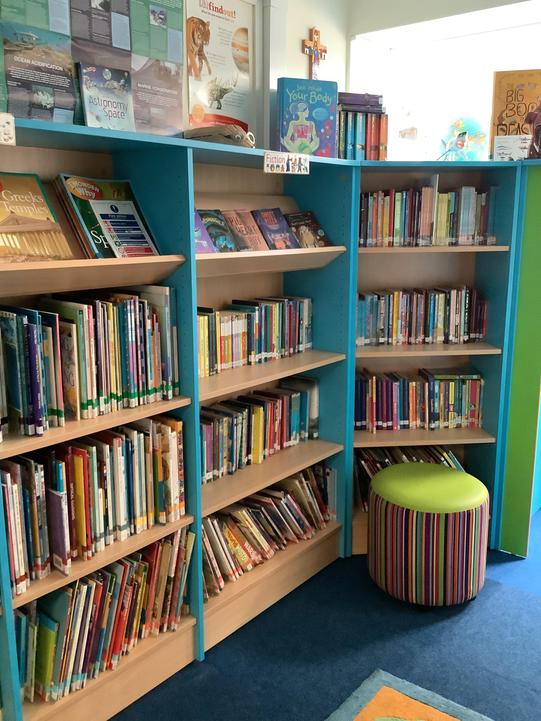
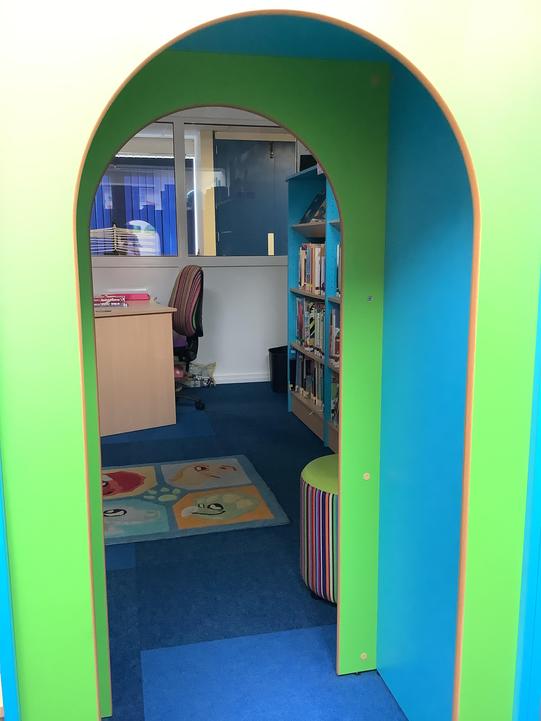
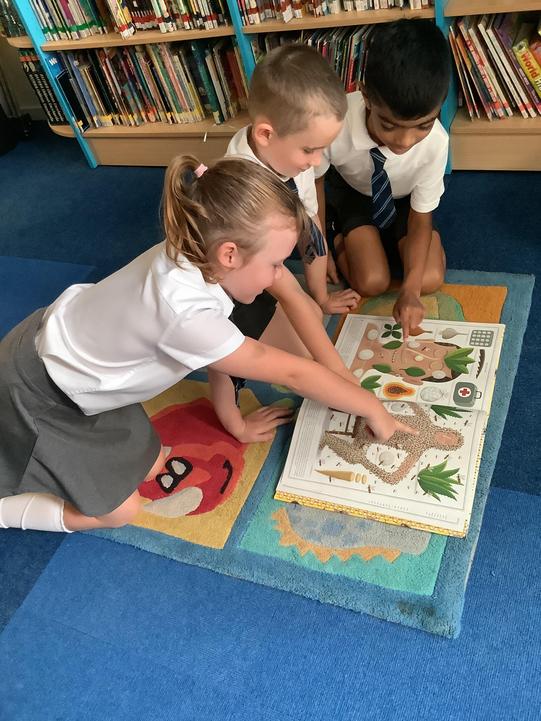
1:1 Reading and Reading Groups
Teachers in school regularly listen to children read and discuss the text with the children during 1:1 and small group reading sessions. It is also important that children have the opportunity to share their home reading book at home too. All children have a reading diary where parents can make comments about the their child’s progress.
